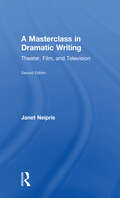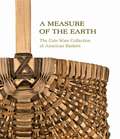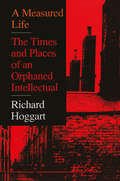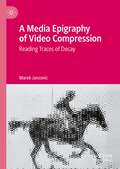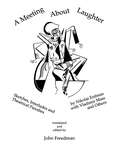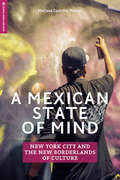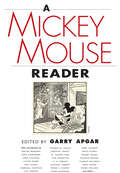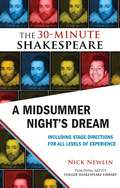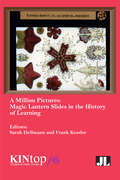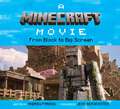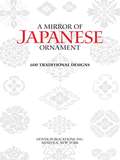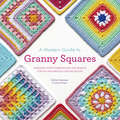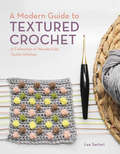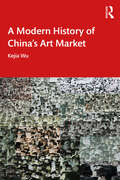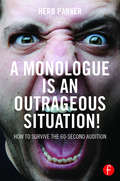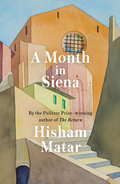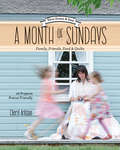- Table View
- List View
A Masterclass in Dramatic Writing: Theater, Film, and Television
by Janet NeiprisA Masterclass in Dramatic Writing is an essential tool for professional teachers in academic programs training successful Playwrights, Screenwriters, and TV writers, as well as anyone who wants to write a completed dramatic script. You can become a successful dramatic writer within a group or by yourself. This focused and engaging book is organized as a one-semester course. The chapters guide the writer week-by-week and step-by-step resulting in the completion of a first draft and a rewrite of an original script. The fourteen chapters are each accompanied by Weekly Exercises and progressive Assignments. In this expanded and updated edition, Neipris integrates her widely used To Be A Playwright, into a master class for playwrights, screenwriters and TV writers. New Chapters include: THE MORAL RESPONSIBILITY OF THE WRITER ONE WRITER’S LIFE BEGINNINGS- WHERE IDEAS ORIGINATE COMEDY CHECKPOINTS ADAPTATION –FILM, THEATER, AND TELEVISION PUTTING IT TOGETHER -- CONSTRUCTING A FULL LENGTH SCRIPT LESSONS FROM MASTER TEACHERS AND STUDENTS Janet’s legacy as an educator, mentor, and artists is legendary. This book is a gift to the profession and the art. Brandon Jacobs-Jenkins
A Masterclass in Dramatic Writing: Theater, Film, and Television
by Janet NeiprisA Masterclass in Dramatic Writing addresses all three genres of dramatic writing - for theatre, film and TV - in a comprehensive, one-semester, 14-week masterclass for the dramatic writer.This book is tightly focused on the practical outcome of completing a first draft and first rewrite of a dramatic work, drawing on Professor Janet Neipris’ many years of experience as the head of Dramatic Writing at NYU Tisch. The fourteen chapters, organized like a semester, take the reader week-by-week and step-by-step through writing a first draft of an original play, screenplay, or TV pilot, while also teaching the core principles of dramatic writing. Chapters include Beginnings, Creating Complex Characters, Dialogue, Escalating Conflicts, Endings, Checkpoints, Comedy, and Adaptation, and there are Weekly Exercises and progressive Assignments.This book is perfect for professional writers, teachers, and students of dramatic writing, as well as anyone who wants to complete their first dramatic work.An award-winning playwright and Professor of Dramatic Writing at NYU, Janet Neipris has written for Screen and Television. She has also taught dramatic writers at UCLA and in China, Australia, Indonesia, South Africa, Italy, and in the UK at Oxford, CSSD, University of Birmingham, and the University of East Anglia. Previous publications include To Be A Playwright (Routledge 2006). Janet Neipris’s plays and letters are in the Theatre Collection of Harvard University’s Houghton Library. For more, see www.janetneipris.com.
A Masterpiece for Bess
by Lara BergenFlattered at first that all the other fairies and sparrow men want her to paint their portraits, Bess soon begins to feel overwhelmed and tries to find a way to return to the kind of painting she really wants to do.
A Matter of Appearance: A Memoir
by Emily WellsA dazzling memoir of chronic illness that explores the fraught intersection between pain, language, and gender, by a debut author.Emily Wells spent her childhood dancing through intense pain she assumed was normal for a ballerina pushing her body to its limits. For years, no doctor could tell Wells what was wrong with her, or they told her it was all in her head.In A Matter of Appearance, Wells traces her journey as she tries to understand and define the chronic pain she has lived with all her life. She draws on the critical works of Freud, Sontag, and others to explore the intersection between gender, pain, and language, and she traces a direct line from the &“hysteria patients&” at the Salpêtrière Hospital in nineteenth-century Paris to the contemporary New Age healers in Los Angeles, her stomping ground. At the crux of Wells&’ literary project is the dilemma of how to diagnose an experience that is both private and public, subjective and quantifiable, and how to express all this in words.&“Gorgeously written and brilliantly argued, A Matter of Appearance uses chronic illness as a lever to investigate the life of a body. It&’s complex, inconclusive, and incredibly clear-eyed. Moving fluidly between histories of psychoanalysis, desire, ambition, pathology, Wells reminds us of the liminal state we all live in between sickness and health.&”—Chris Kraus, author of Aliens & Anorexia and Summer of Hate
A Measure of the Earth
by Henry Glassie Nicholas R. BellA Measure of the Earth provides an unparalleled window into an overlooked corner of recent American history: the traditional basketry revival of the past fifty years. Steve Cole and Martha Ware amassed a remarkable collection using the most stringent guidelines: baskets made from undyed domestic materials that have been harvested by the maker. An essay by Nicholas Bell details the long-standing use of traditional fibers such as black ash and white oak, willow and sweetgrass, and the perseverance of a select few to claim these elements--the land itself--for the enrichment of daily life. As they trek through woods, fields, farm, and shore in the quest for the right ingredients for a basket, these men and women cultivate an enviable knowledge of the land. Each basket crafted from this knowledge provides not only evidence of this connection to place, but also a measure of the earth.Drawing on conversations with the basketmakers from across the country and reproducing many of their documentary photographs, Bell offers an intimate glimpse of their lifeways, motivations, and hopes. Lavish illustrations of every basket convey the humble, tactile beauty of these functional vessels.
A Measured Life: The Times and Places of an Orphaned Intellectual
by Richard HoggartRichard Hoggart's book, The Uses of Literacy, established his reputation as a uniquely sensitive and observant chronicler of English working-class life. This pioneering work, first published in 1957, examines changes in the life and values of the English working class in response to mass media. It maps out a new methodology in cultural studies based around interdisciplinary and a concern with how textsin this case, mass publicationsare stitched into the patterns of lived experience. Mixing personal memoir with social history and cultural critique. The Uses of Literacy anticipates recent interest in modes of cultural analysts that refuse to hide the author behind the mask of objective social scientific technique. In its method and in its rich accumulation of the detail of working-class life, this volume remains useful and absorbing.
A Media Epigraphy of Video Compression: Reading Traces of Decay
by Marek JancovicThis book explores the historical interrelationships between mathematics, medicine and media, and offers a unique perspective on how video compression has shaped our relationship with moving images and the world. It situates compression in a network of technological, visual and epistemic practices spanning from late 18th-century computational methods to the standardization of electrical infrastructure and the development of neurology throughout the 1900s. Bringing into conversation media archaeology, science and technology studies, disability studies and queer theory, each chapter offers an in-depth look at a different trace of compression, such as interlacing, macroblocking or flicker. This is a story of forgotten technologies, unusual media practices, strange images on the margins of visual culture and inventive ways of looking at the world. Readers will find illuminating discussions of the formation of complex scientific and medical systems, and of the violent and pleasurable interactions between our bodies and media infrastructure.
A Meeting About Laughter
by Nikolai Erdman; Vladimir Mass; John FreedmanFirst Published in 1995. A Meeting About Laughter is a collection of sketches, interludes and theatrical parodies by Nikolai Erdman, Vladimir Mass and others. Translated from the Russian Theatre Archive by John Freedman, Harvard University. Erdman is best known as the author of The Warrant and The Suicide, both written for Vsevolod Meyerhold in the 1920s. Also including the transcript of a startling discussion of The Suicide at the Vakhtangov Theatre in 1930 and the only surviving fragments of Erdman's third play The Hypnotist.
A Merry Christmas with Kim Schaefer: 27 Festive Projects to Deck Your Home
by Kim Schaefer27 quick-sew Christmas quilts and small projects to add whimsy to your holidays, from the bestselling author of Black & White, Bright & Bold.From tree skirts to table toppers, decorate your entire home with Christmas cheer! Featuring 27 Christmas-themed quilting projects, this book by bestselling author Kim Schaefer includes cheerful coasters, pretty place mats, and gorgeous gift tags. Fans of patchwork and appliqué will love Kim’s joyful mini-quilts and little gifts. Also includes banners, wreaths, gift tags, pillows, runners, and more. Enjoy this must-have collection of quick-and-easy Christmas keepsakes.Praise for Merry Christmas with Kim Schaefer“This [colorful] book is filled with fun Christmas projects that are all quick and easy to make. Included are patterns for three tree skirts, six placemats, two table toppers, two table runners, two wall hangings, one lap quilt, two Christmas wreaths, two banners, coasters, gift tags, four pillows and an ornament tree. Perfect to decorate your home or as gifts for loved ones.” —Down Under Textiles
A Mexican State of Mind: New York City and the New Borderlands of Culture (Global Media and Race)
by Melissa Castillo PlanasA Mexican State of Mind: New York City and the New Borderlands of Culture explores the cultural and creative lives of the largely young undocumented Mexican population in New York City since September 11, 2001. Inspired by a dialogue between the landmark works of Paul Gilroy and Gloria Anzaldúa, it develops a new analytic framework, the Atlantic Borderlands, which bridges Mexican diasporic experiences in New York City and the black diaspora, not as a comparison but in recognition that colonialism, interracial and interethnic contact through trade, migration, and slavery are connected via capitalist economies and technological developments. This book is based on ten years of fieldwork in New York City, with members of a vibrant community of young Mexican migrants who coexist and interact with people from all over the world. It focuses on youth culture including hip hop, graffiti, muralism, labor activism, arts entrepreneurship and collective making.
A Mickey Mouse Reader
by Garry ApgarContributions by Walter Benjamin, Lillian Disney, Walt Disney, E. M. Forster, Stephen Jay Gould, M. Thomas Inge, Jim Korkis, Anna Quindlen, Diego Rivera, Gilbert Seldes, Maurice Sendak, John Updike, Irving Wallace, Cholly Wood, and many othersRanging from the playful, to the fact-filled, and to the thoughtful, this collection tracks the fortunes of Walt Disney's flagship character. From the first full-fledged review of his screen debut in November 1928 to the present day, Mickey Mouse has won millions of fans and charmed even the harshest of critics. Almost half of the eighty-one texts in A Mickey Mouse Reader document the Mouse's rise to glory from that first cartoon, Steamboat Willie, through his seventh year when his first color animation, The Band Concert, was released. They include two important early critiques, one by the American culture critic Gilbert Seldes and one by the famed English novelist E. M. Forster. Articles and essays chronicle the continued rise of Mickey Mouse to the rank of true icon. He remains arguably the most vivid graphic expression to date of key traits of the American character—pluck, cheerfulness, innocence, energy, and fidelity to family and friends. Among press reports in the book is one from June 1944 that puts to rest the urban legend that “Mickey Mouse” was a password or code word on D-Day. It was, however, the password for a major pre-invasion briefing. Other items illuminate the origins of “Mickey Mouse” as a term for things deemed petty or unsophisticated. One piece explains how Walt and brother Roy Disney, almost single-handedly, invented the strategy of corporate synergy by tagging sales of Mickey Mouse toys and goods to the release of Mickey's latest cartoons shorts. In two especially interesting essays, Maurice Sendak and John Updike look back over the years and give their personal reflections on the character they loved as boys growing up in the 1930s.
A Midsummer Night's Dream: The 30-Minute Shakespeare
by Nick NewlinPlanning a school or amateur Shakespeare production? The best way to experience the plays is to perform them, but getting started can be a challenge: The complete plays are too long and complex, while scene selections or simplified language are too limited."The 30-Minute Shakespeare" is a new series of abridgements that tell the "story" of each play from start to finish while keeping the beauty of Shakespeare's language intact. Specific stage directions and character suggestions give even inexperienced actors the tools to perform Shakespeare with confidence, understanding, and fun!This cutting focuses on three ridiculously funny and vibrant scenes from A MIDSUMMER NIGHT'S DREAM. The first scene starts with Puck mistakenly anointing the eyes of the wrong lovers with love potion, leading to a madcap chase scene between Helena, Lysander, Hermia, and Demetrius. Scene two features Bottom's magical transformation to an ass, always an audience favorite. The final scene is the classic play within a play, where the "Rude Mechanicals" act out with "tragical mirth" the story of Pyramus and Thisbe, with specific comic suggestions for the characters, including Lion chasing Thisbe into the audience!The edition also includes an essay by editor Nick Newlin on how to produce a Shakespeare play with novice actors, and notes about the original production of this abridgement at the Folger Shakespeare Library's annual Student Shakespeare Festival.
A Million Pictures: Magic Lantern Slides in the History of Learning
by Sarah Dellmann and Frank KesslerSlides for the magic or optical lantern were a major tool for knowledge transfer in the second half of the 19th and early 20th centuries. Schools, universities, the church and many public and private institutions all over the world relied on the lantern for illustrated lectures and demonstrations. This volume brings together scholarly research on the educational uses of the optical lantern in different disciplines by international specialists, representing the state of the art of magic lantern research today. In addition, it contains a lab section with contributions by archivists and curators and performers reflecting on ways to preserve, present and re-use this immensely rich cultural heritage today.Authors of this collection of essays will include Richard Crangle, Sarah Dellmann, Ine van Dooren, Claire Dupré La Tour, Jenny Durrant, Francisco Javier Frutos Esteban, Anna Katharina Graskamp, Emily Hayes, Erkki Huhtamo, Martyn Jolly, Joe Kember, Frank Kessler, Machiko Kusahara, Sabine Lenk, Vanessa Otero, Carmen López San Segundo, Ariadna Lorenzo Sunyer, Daniel Pitarch, Jordi Pons, Montse Puigdeval, Angélique Quillay, Angel Quintana Morraja, Nadezhda Stanulevich, Jennifer Tucker, Kurt Vanhoutte, Márcia Vilarigues, Joseph Wachelder, Artemis Willis, Lee Wing Ki, Irene Suk Mei Wong, and Nele Wynants.
A Mind Awake: An Anthology of C. S. Lewis
by C. S. LewisA repackaged edition of the revered author’s anthology featuring hundreds of selections from his writings, organized by the main themes of Christian faith.C. S. Lewis—the great British writer, scholar, lay theologian, broadcaster, Christian apologist, and bestselling author of Mere Christianity, The Screwtape Letters, The Great Divorce, The Chronicles of Narnia, and many other beloved classics—wrote widely on all the main themes of Christian faith: God, Jesus, the Trinity, Scripture, sin, evil, nature, sex, the Christian life, prayer, faith, compassion, guilt, and forgiveness. A Mind Awake includes hundreds of short excerpts, curated from the full range of his works and organized them by theme. Useful as both a reference work and as a devotional resource, A Mind Awake contains hidden gems of wisdom that are provocative, whimsical, and insightful, and is an ideal introduction to this towering figure who has profoundly influenced modern Christianity.
A Minecraft Movie: From Block to Big Screen
by Andrew FaragoGo behind the scenes of A Minecraft Movie and experience the creative journey that transformed the biggest video game of all time into a big-screen block-buster.Break open the filmmaking secrets of A Minecraft Movie with this deluxe art book. Featuring commentary from the filmmakers, this volume explores how a team of world-class artists brought the iconic, limitless world of Minecraft to the big screen. Including insights from the creatives as well as stunning illustrations and visuals––such as never-before-seen concept art and photography––this book is the ultimate companion to the first ever live-action adaptation of Minecraft. NEVER-BEFORE-SEEN IMAGERY: From character, mob, and item designs to images of in-world Minecraft locations and stunning photography, this book offers an incredible gallery of visuals from A Minecraft Movie. INTERVIEWS WITH CREATORS: Immerse yourself in the world of Minecraft like never before with exclusive behind the scene insights from the game creators and filmmakers. MINE THE CREATIVE CRAFT: Follow the filmmaking process of adapting the biggest video game of all time via beautiful concept art, amazing photography, and more.
A Mirror Garden: A Memoir
by Zara Houshmand Monir FarmanfarmaianIn Persia in 1924, when a child still had to worry about hostile camels in the bazaar and a nanny might spin stories at her pillow until her eyes fell shut, the extraordinary and irresistible Monir Shahroudy Farmanfarmaian was born. From the enchanted basement storeroom where she played as a girl to the penthouse high above New York City where she would someday live, this is the delightful and inspiring story of her life as an artist, a wife and mother, a collector, and an Iranian. Here we see a mischievous girl become a spirited woman who defies tradition. Both a love story and a celebration of the warmth and elegance of Iranian culture, A Mirror Garden is a genuine fairy tale of an exuberant heroine who has never needed rescuing.From the Trade Paperback edition.
A Mirror of Japanese Ornament: 600 Traditional Designs
by DoverRendered from a rare 1915 five-volume set, this all-encompassing design treasury captures the graceful beauty of traditional Japanese motifs. These 100 full-color plates--many with multiple images--range from ornate florals and elegant cranes to dragons and Buddhas, and from Silk Road imports to Edo-style textile patterns.A veritable grammar of Japanese ornament, this compilation includes an Introduction, Chronology, and Bibliography, as well as captions translated from the original Japanese notes. In addition to their applications for fabric and wallpaper designs, these vivid royalty-free images are ideal for a tremendous variety of graphics projects, and are, in addition, a treat for connoisseurs of Japanese art.
A Modern Guide to Granny Squares: Awesome Color Combinations and Designs for Fun and Fabulous Crochet Blocks
by Celine Semaan Leonie MorganA collection of forty creative designs for easy and colorful crochet blocks.Not your usual granny squares! Celine Semaan has designed more than contemporary and colorful 6" x 6" blocks to get your creativity flowing. Blocks are the best way to try out new stitches and color combinations, and they can then be used to make four projects, including a blanket, pillow, and wall hanging. There is a basic overview on color theory, more than forty granny square patterns, each with: written instructions, chart, and detailed photos, showing stitch detail.
A Modern Guide to Textured Crochet: A Collection of Wonderfully Tactile Stitches
by Lee SartoriA colorful and contemporary collection of stitches, crochet techniques, and projects for creating rich and appealing texture in your workCrocheters looking for more texture, depth, and contemporary design will delight in this colorful new guide. Aimed at the experienced beginner to intermediate level crocheters with some extra ideas aimed at more advanced makers, the book covers a variety of textured crochet techniques--from the straightforward to the more complex and unusual --along with beautiful projects designed to showcase them. Get ready to explore the beautiful textures that can be achieved with crochet--Bobbles, Popcorns, Clusters, Puffs and more. Each chapter guides you through a new stitch or stitch progression with photos, detailed instructions and diagrams to ensure you can follow along easily. In addition to simple, on-trend projects perfect for gifting or use in your home or wardrobe, you'll find useful tips for saving time and troubleshooting, and additional ideas to explore.
A Modern Herbal
by Alys FowlerTHE BEST GARDENING BOOKS OF THE YEAR - GARDENS ILLUSTRATED'Informative and enthusiastic' i PaperPLANT-BASED MEDICINE FOR A CALMER, HEALTHIER LIFE It's easy to turn to the pharmacy when we're stressed, sick or feeling under the weather, but what if you turned to your garden instead?In this accessible and easy to use manual, horticultural expert, former Gardener's World presenter and Guardian columnist, Alys Fowler, shows how to take control of your health by adopting a more natural lifestyle. For thousands of years, people who had no access to clinical medicine knew how to boost their well-being by using the ingredients they found in plants. Herbs are the people's medicine; often freely available and abundant, they are ready and waiting to be plucked from around you to soothe and heal your body and mind. With guides for how to use and grow over 100 herbs - for example how to use fennel for indigestion, camomile for anxiety and nettle for hayfever - you'll soon be heading into the garden, rather than opening the medicine cabinet. Offering a fusion of botanical, practical, cultural and historical information, A Modern Herbal reveals how common herbs are the simple, cleansing way to better health and happiness.AS SEEN IN THE GUARDIAN'An important and accessible herbal for the 21st century . . . For anyone delving into herbs for the first time or those who want to broaden their herbal repertoire in the garden and home, this book is much needed' Gardens Illustrated
A Modern History of China's Art Market
by Kejia WuThis is the first English-language account of the modern history of China’s art market that explains the radical transformations from the end of the Cultural Revolution, when a market for art and artifacts did not exist, to today. The book is divided into three sections: Part I examines how the art market in China was suspended during the Cultural Revolution, restarted, grew, and expanded into its current scale. Part II analyzes the distinctive value system of the Chinese art market where the state-run art system including academies, artist associations and museums co-exist with an independent market-oriented system; and traverses the most significant policies that drive decision-making and market structure. Part III explores the driving force of art creation by telling the stories of five contemporary artists across three generations. Arts and culture professionals, scholars, and students interested in Chinese art, global art markets, Chinese government policy, and China will find this to be a valuable resource.
A Modern Way to Live: 5 Design Principles from The Modern House
by Matt GibberdBeautifully designed and featuring breathtaking photography, this book from the creator of The Modern House makes the perfect coffee table book and is the ultimate gift for home design enthusiasts 'A source of fascination, inspiration and fantasy' GuardianIn 2005, childhood friends Matt Gibberd and Albert Hill set out to convince people of the power of good design and its ability to influence our wellbeing. They founded The Modern House - in equal parts an estate agency, a publisher and a lifestyle brand - and went on to inspire a generation to live more thoughtfully and beautifully at home.As The Modern House grew, Matt and Albert came to realise that the most successful homes they encountered - from cleverly conceived studio flats to listed architectural masterpieces - had been designed with attention to the same timeless principles: Space, Light, Materials, Nature and Decoration.In this lavishly illustrated book, Matt tells the stories of these remarkable living spaces and their equally remarkable owners, and demonstrates how the five principles can be applied to your own space in ways both large and small. Revolutionary in its simplicity, and full of elegance, humour and joy, this book will inspire you to find happiness in the place you call home.PRAISE FOR THE MODERN HOUSE:'One of the best things in the world' GQ'The Modern House transformed our search for the perfect home' Financial Times'Nowhere has mastered the art of showing off the most desirable homes for both buyers and casual browsers alike than The Modern House' Vogue
A Monologue is an Outrageous Situation!: How to Survive the 60-Second Audition
by Herb ParkerA Monologue is an Outrageous Situation! How to Survive the 60-Second Audition explains how to successfully tackle the "cattle call" acting audition with a sixty-second monologue. Through Q&As, tips, director’s notes, and a glossary full of outrageous actions meant to inspire the actor into truly connecting with the piece, this book shows actors where and how to find a monologue, edit it, and give the best audition possible.
A Month in Siena
by Hisham MatarFrom the Pulitzer Prize–winning author of The Return comes a profoundly moving contemplation of the relationship between art and life. After finishing his powerful memoir The Return, Hisham Matar, seeking solace and pleasure, traveled to Siena, Italy. Always finding comfort and clarity in great art, Matar immersed himself in eight significant works from the Sienese School of painting, which flourished from the thirteenth to the fifteenth centuries. Artists he had admired throughout his life, including Duccio and Ambrogio Lorenzetti, evoke earlier engagements he’d had with works by Caravaggio and Poussin, and the personal experiences that surrounded those moments.Including beautiful full-color reproductions of the artworks, A Month in Siena is about what occurred between Matar, those paintings, and the city. That month would be an extraordinary period in the writer’s life: an exploration of how art can console and disturb in equal measure, as well as an intimate encounter with a city and its inhabitants. This is a gorgeous meditation on how centuries-old art can illuminate our own inner landscape—current relationships, long-lasting love, grief, intimacy, and solitude—and shed further light on the present world around us.Praise for A Month in Siena“As exquisitely structured as The Return, driven by desire, yearning, loss, illuminated by the kindness of strangers. A Month in Siena is a triumph.”—Peter Carey
A Month of Sundays: Family, Friends, Foods & Quilts
by Cheryl ArkisonThe author of Sunday Morning Quilts returns with a new volume of inspiring projects, personal journeys, and advice on how to savor quiet moments.Cheryl Arkison’s A Month of Sundays is a quilting book like no other. Exploring the themes of Relaxing, Eating, Shopping, and Exploring, Cheryl seeks to inspire both creativity and a quiet energy. She shares 16 family-friendly projects, all based on these themes and featuring low-volume fabrics. Along with gorgeous quilts, there are aprons, napkins, bags, and other items to be made.Arkison’s personal journeys and ideas are sure to inspire your own weekend explorations. Designed for the confident beginner, the patterns are simple and straightforward. This unique book is at once exciting and restful, much like the perfect Sunday stroll.
